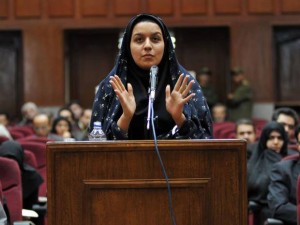By Kathryn Maureen Ryan
Impunity Watch, Managing Editor
BAGHDAD, Iraq – Jana, a 19 year old girl, was finishing her final year of secondary school with hopes of one day becoming a doctor when her village was taking over by fighters from the Islamic State of Iraq and the Levant (ISIS). Jana belongs to Iraq’s Yazidis religious minority. The Yazidis are a Kurdish community who practice Yazidism, an ancient faith with strong ties to Zoroastrianism and ancient Mesopotamian religions that has been heavily influenced by both Islam and Christianity. Yazidism is practiced by Kurdish communities that are practiced in both Iraq and Syria.
According to a United Nation’s report ISIS fighters “gathered all the males older than 10 years of age at the local school, took them outside the village by pick-up trucks, and shot them.”Among those believed to have been murdered by ISIS fighters were Jana’s father and eldest brother.
“I was hiding behind a water tank in the front yard and saw them killing my father and brother and [taking] away my mother and sister. I don’t know anything about them since” a 14-year-old Yazidi girl living in a refugee camp in Iraq’s Duhok governorate. A19 year old Yazidi said “They put us in trucks and drove us to a big building, before transferring us to a hall across the road. She continued, “Then their seniors came and started condemning our religion and asking us to convert to Islam … They separated me along with other young ones and ordered us to stay there while taking away the elderly women. She added, “The man I was given to raped me several times and then left me in the room on my own. I was shaking from pain and fear in that hot room, my entire body sweating. Suddenly, another man came and did what he wanted to do despite me crying and begging him, kissing his foot to leave me alone …”
Thousands of Yazidi women and girls have abducted by ISIS fighters, many were taken during their attack on the Sinjar district on 2 August 2014. 2,500 girls and women were abducted during the attack on Sinjar. Since then, one hundred girls and women have managed to escape their jailers and rejoin their community.
The enslaved women have become a source of income for the ISIS group. Treated like cattle, they are trafficked in markets in Mosul in Iraq, and Raqqa in Syria. The women and girls are often sold for between $25 and $1,000. Women who resisted are killed and many have committed suicide, some Yazidi who managed to get their stories out of ISIS controlled territories have said they would rather face death than life as a sex slave.
Enslavement of women has been used as a weapon of war by ISIS, it is used as a means of subjecting the community, dissolve family units and even pollute the bloodlines of the populations targeted by ISIS. Some young girls were “cheaply sold” and mainly given to young boys as a way of recruiting them into the ISIS ranks. ISIS itself publically encourages that taking of women as spoils of war and as a form of punishment of those they consider “infidels.” The organization claimed “One should remember that enslaving the families of the kuffar — the infidels — and taking their women as concubines is a firmly established aspect of the Shariah, or Islamic law,” in the ISIS propaganda publication “Dabiq.”
Kurdish authorities say they have rescued around 100 Yazidi women, in part through the payment of ransoms to Arab tribesmen who acted as intermediaries. However, thousands of women remain enslaved by the ISIS group.
For More Information Please See:
CNN International – ‘Treated Like Cattle’: Yazidi Women Sold, Raped, Enslaved By ISIS – 30 October 2014
CNN International – Why ISIS’s Treatment of Yazidi Women Must Be Treated As Genocide – 30 October 2014
International Business Times – ISIS News: ‘Raped, Abused’ Yazidi Women Beg West To Bomb Their Brothel and Kill Them [VIDEO] – 30 October 2014
Al Jazeera – Traumatized By ISIL, Yazidis Seek Help – 28 October 2014

